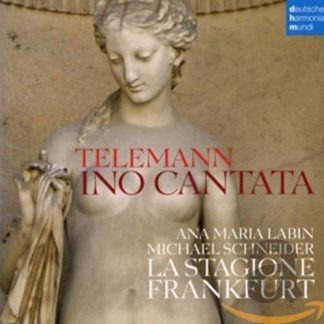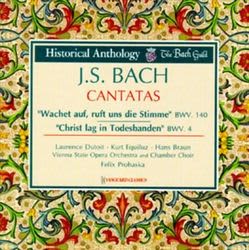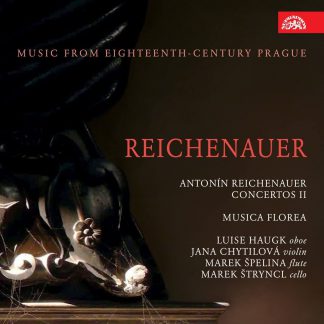Περιγραφή
Καλλιτέχνες
|
Antonín Reichenauer (c. 1694-1730) – Sonata for two trumpets, timpani and strings; Oboe Concerto in B flat major; Cello Concerto in D minor; Suite in B flat major for two oboes, bassoon and strings; Violin Concerto in G major; Flute Concerto in G major Luise Haugk – Baroque oboe, Jana Chytilová – Baroque violin, Marek Špelina – Baroque transverse flute, Marek Štryncl – Baroque cello Musica Florea, Artistic Director: Marek Štryncl (performed on period instruments) Antonín Reichenauer (c. 1694-1730) – a few years ago a name virtually unknown, today mentioned by Baroque music lovers in the same breath as the greatest Czech Baroque masters, not to mentionAntonio Vivaldi himself. Reichenauer assumed after Johann Friedrich Fasch the post of court composer in the service of Count Morzin, whose chapel Vivaldi called a “virtuosissima orchestra” and for which he wrote a number of concertos. Following the previous – and first-ever – CD featuring Reichenauer’s concertos (SU 4035-2), within its Music from Eighteenth-Century Prague seriesSupraphon is now releasing world premiere recordings of other concertante works as performed by Musica Florea. Twenty years ago among the Czech pioneers of authentic interpretation of early music,today Musica Florea is an ensemble of international renown with a discography of acclaimed and award-winning recordings (Cannes Classical Award, Diapason d’Or). Their perfectly mastered playing onperiod instruments brings out to the full all the shades of colour, exquisite melodies and entrancing virtuosity of the concertos. After centuries, Reichenauer’s music is now revived and, asthese recordings prove, rightly so. From the archives a priceless treasure has been unearthed. Reichenauer – not some dusty museum piece but full-blooded music we have not known for three centuries. |











